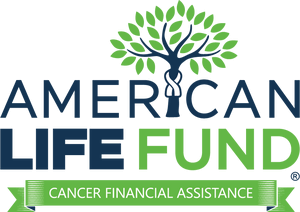Financial Assistance for Breast Cancer Patients
A breast cancer diagnosis brings more than medical concerns—it can instantly upend your financial stability. Monthly breast cancer treatment costs can range from $10,000 to over $30,000, depending on insurance status, medication needs, and frequency of appointments. Add in lost work time, transportation, and daily household bills, and the pressure builds fast.
Even for those with health insurance, out-of-pocket costs for co-payments, medical supplies, and non-covered prescription drugs is overwhelming. And for family members supporting someone through active treatment, the financial impact reaches beyond medical care.
We will show—not tell—what real financial assistance programs offer. You’ll find:
- Direct support for living expenses, bills, and medications
- Free rides and lodging assistance for out-of-town treatment
- Programs that help cover health insurance premiums, diagnostic tests, and co insurance
- Support from financial counselors, social workers, and nonprofit organizations that specialize in financial aid for breast cancer patients
Whether you’ve just been diagnosed or you’re already deep into treatment, the information here is meant to remove barriers, cut through confusion, and show you what help is out there—and how to get it.
Government Programs That Help Pay for Treatment
Federal and state programs can provide meaningful relief—if you know where to look and what they actually cover. Many are based on income, disability status, or current insurance gaps. Here’s what these assistance programs do, how to apply, and how they help reduce the financial challenges that come with breast cancer treatment.
Medicaid
Medicaid offers full or partial coverage for prescription drugs, imaging, hospital stays, and other health-related expenses tied to breast cancer. It’s available to individuals with limited income and resources, and some states expand eligibility during serious illness.
What it helps with: Treatment, hospital bills, cancer-related prescriptions, and sometimes transportation costs
What to know: Income limits vary by state; applications typically reviewed within 30–45 days
How to apply: Go to Healthcare.gov or your state’s human services department
Medicare
Medicare supports people 65+ or younger individuals with qualifying disabilities. If breast cancer treatment is preventing you from working, you may qualify for early access. Coverage includes inpatient stays (Part A), outpatient services (Part B), and prescription drug plans (Part D).
What it helps with: Surgeries, diagnostics, imaging, outpatient therapy, co payments, and durable medical supplies
What to know: You may need a supplemental plan to reduce co insurance costs
How to apply: Visit Medicare.gov
Social Security Disability Insurance (SSDI)
Metastatic breast cancer typically qualifies as a disability under SSDI. If you’ve worked and contributed to Social Security, SSDI can provide monthly income while you’re unable to work due to illness.
What it helps with: Monthly financial support and future Medicare access
What to know: Application process includes submitting your medical records; decisions may take up to 5 months unless expedited
How to apply: SSA.gov or call the toll-free number 1-800-772-1213
Supplemental Security Income (SSI)
SSI supports individuals with very low income and few assets—especially useful for uninsured or underinsured breast cancer patients with no recent work history. Benefits can be used toward monthly payments for rent, groceries, and basic care.
What it helps with: Monthly cash payments to cover basic needs during treatment
What to know: Means-tested; unrelated to your work history
How to apply: SSA.gov or visit your local health and human services office
State-Based Health Insurance Help
Most states have special insurance assistance programs through state insurance agencies—some offer temporary Medicaid-like plans, premium subsidies, or fast-tracked coverage for people with a breast cancer diagnosis.
What it helps with: Short-term insurance plans, premium help, or case management
What to know: Each program is state-specific; many coordinate with hospitals and cancer centers
How to apply: Search “state insurance help + [your state]” or contact your patient navigator at your local treatment facility
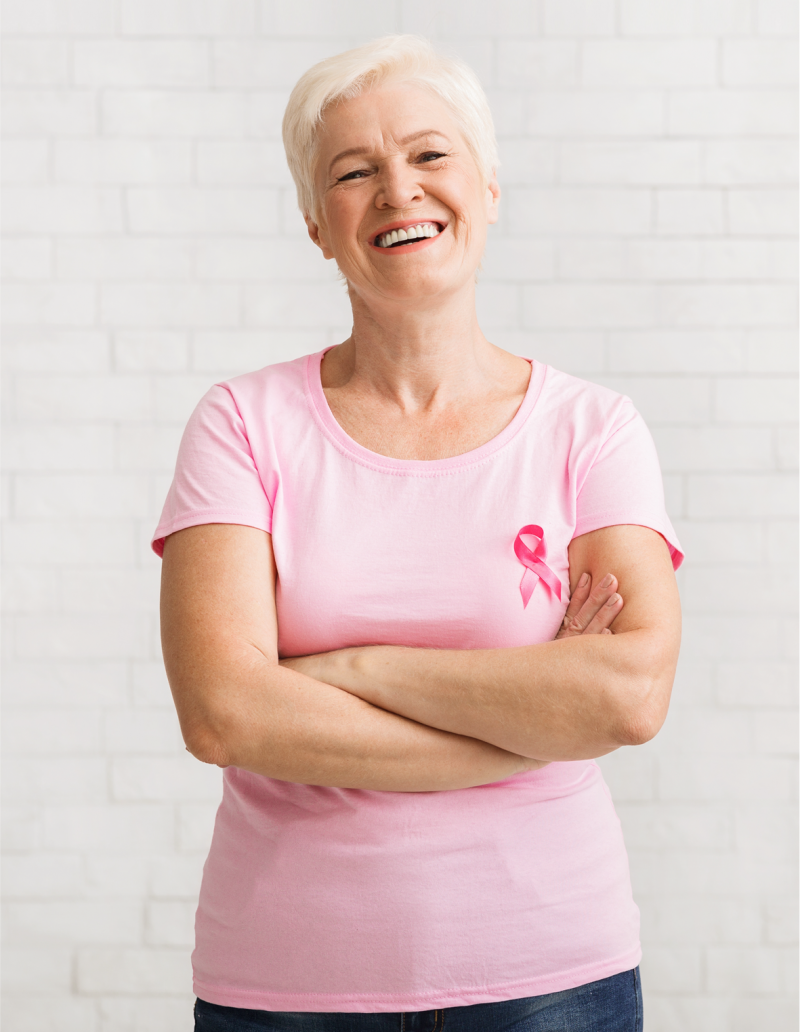

Viatical Settlements and Why American Life Fund Is Your Choice
When someone has a life-threatening illness, time matters—so does financial stability. A viatical settlement allows you to convert an existing life insurance policy into a large lump-sum cash payment, giving you the freedom to afford medical bills, living expenses, alternative treatment, and everything in-between, without draining savings or asking family for help.
Where other financial options delay, complicate, or fall short, American Life Fund delivers simplicity, speed, and dignity.
Why Choose a Viatical Settlement Through American Life Fund
- Immediate funds, no delays: Once approved, we deliver the cash quickly—often within days—not weeks or months. That money can be used however you need: nursing care, medical supplies, or even experiences with your loved ones. There are no restrictions on use.
- You keep your privacy: The process is completely confidential. You’re not applying for charity or asking for approval from an insurance company or community organization. It’s a direct exchange that respects your decisions and time.
- No out-of-pocket costs: There are zero fees to apply. You don’t pay anything to begin the process or complete it—ever. There’s no risk in getting a quote.
- You stop paying premiums: Once you accept the settlement and sell your policy, you are no longer responsible for ongoing premium payments. That’s one less bill and one less worry.
- We are fast, personal, and experienced: We specialize in working with people facing serious illness. Our team is trained to keep paperwork to a minimum, get straight to the point, and treat you with the utmost care and respect.
Eligibility Criteria: Simple and Transparent
American Life Fund makes eligibility straightforward. To qualify for a viatical settlement:
- You must have a life-threatening illness such as breast cancer, ALS, Alzheimer’s, or another advanced diagnosis.
- You own a life insurance policy of $200,000 or more. The policy must be at least two years old.
- We accept most policy types, including term, whole, universal, and group life insurance.
- You must be the legal policyholder, or have permission to act on behalf of the policyholder.
If you meet these criteria, you’re eligible to receive between 50% and 70% of the policy’s face value, depending on the specifics of your diagnosis and policy details.
Nonprofit Organizations Offering Financial Support
Navigating the financial challenges of a breast cancer diagnosis can be overwhelming. Fortunately, several nonprofit organizations offer targeted financial assistance to help alleviate the burden. Below are some key programs, including the types of support they provide and eligibility criteria.
The Pink Fund
The Pink Fund offers a 90-day financial assistance program for breast cancer patients in active treatment who have experienced a loss of income. Eligible individuals can receive up to $3,000 to cover non-medical cost-of-living expenses such as housing, transportation, utilities, and health insurance premiums. Funds are paid directly to creditors on behalf of the patient.
Eligibility: Must be in active treatment and demonstrate a loss of working income due to the diagnosis
Application: Apply online at pinkfund.org.
Patient Advocate Foundation (PAF)
PAF provides several financial assistance programs for breast cancer patients:
- Metastatic Breast Cancer Financial Aid Fund: Offers a one-time $600 grant to patients with Stage III or IV breast cancer to cover non-medical expenses like transportation, housing, utilities, and food.
- Co-Pay Relief Program: Provides financial assistance for co-payments, co-insurance, and deductibles required by the patient’s insurance plan. The amount varies based on need and fund availability.
Eligibility: Varies by program; generally requires proof of diagnosis and financial need
Application: Visit patientadvocate.org or call 1-800-532-5274.
CancerCare Co-Payment Assistance Foundation
CancerCare offers a Co-Payment Assistance Foundation that provides financial help to eligible breast cancer patients to cover the cost of co-payments for chemotherapy and targeted treatment drugs. The program offers an initial grant of $4,000, with the possibility of additional funds up to a $10,000 cap.
Eligibility: Patients must meet financial eligibility criteria and be insured. Metastatic Breast Cancer Network
Application: Apply online at cancercare.org or call 1-800-813-HOPE (4673).
Susan G. Komen Financial Assistance Program
Susan G. Komen offers financial assistance to individuals undergoing treatment for breast cancer. The program provides help with daily living expenses such as rent, utilities, transportation, and childcare. While specific grant amounts are not publicly disclosed, assistance is available to those with a household income at or below 300% of the federal poverty level.
Eligibility: Must be in active treatment for breast cancer and meet income guidelines
Application: Contact the Komen Breast Care Helpline at 1-877-465-6636 or visit komen.org.
National Breast Cancer Foundation (NBCF) – Patient Relief Program
NBCF’s Patient Relief Program provides financial assistance to breast cancer patients for essential needs such as food, transportation, utilities, and childcare. The program operates through partner hospitals, and patients must apply through their healthcare provider.
Eligibility: Determined by partner hospitals; generally requires proof of diagnosis and financial need
Application: Speak with your hospital’s social worker or patient navigator for application details.
Living Beyond Breast Cancer Fund
The Living Beyond Breast Cancer Fund offers one-time grants ranging from $500 to $1,250 to help patients with expenses such as rent, utilities, and transportation. Grants are awarded based on financial need and available funding.
Eligibility: Open to breast cancer patients demonstrating financial need
Application: Apply through lbbc.org.
Transportation Assistance
Getting to regular appointments can become its own financial challenge—especially when treatment centers are far from home or daily visits are required. These programs help reduce the transportation costs many breast cancer patients face during active treatment.
American Cancer Society – Road to Recovery
This volunteer-run program offers free rides to and from treatment appointments. It’s available in most areas, though availability depends on local volunteers.
What it helps with: Transportation to treatment centers
How to apply: Call the American Cancer Society at 1-800-227-2345 or visit cancer.org
Mercy Medical Angels
For those needing to travel long distances for breast cancer treatment, Mercy Medical Angels arranges free air and ground transportation for eligible patients.
What it helps with: Flights, gas cards, and lodging coordination for out-of-town care
How to apply: Go to mercymedical.org
The Cancer Card Xchange
Offers gas cards and travel gift cards to people diagnosed with cancer who need help covering travel costs. Amounts vary based on funding.
What it helps with: Fuel and transportation gift cards
How to apply: Visit cancercardxchange.org
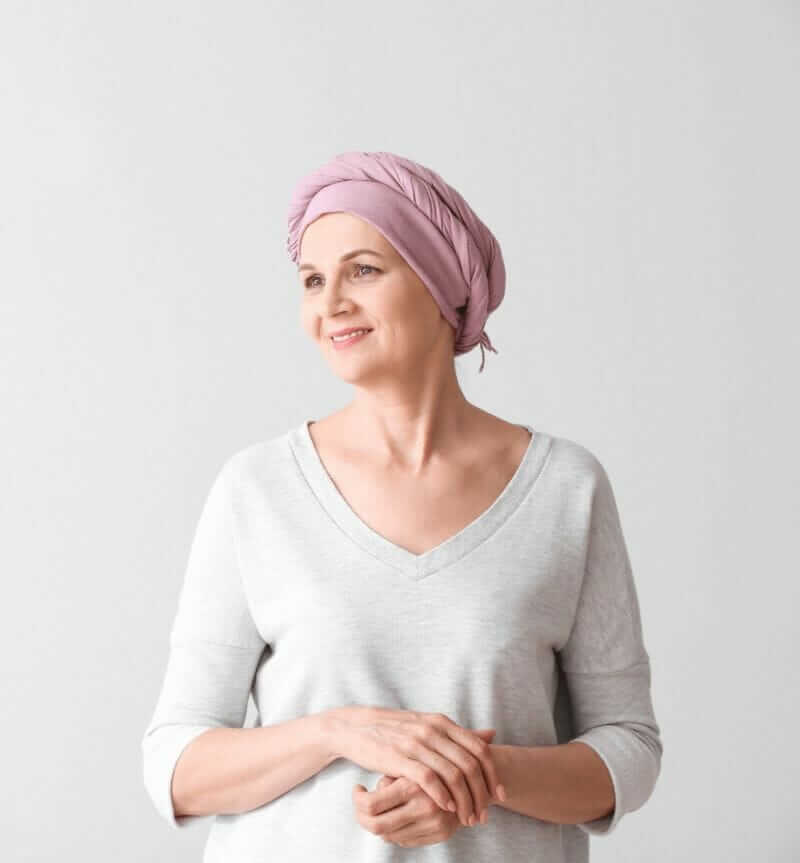
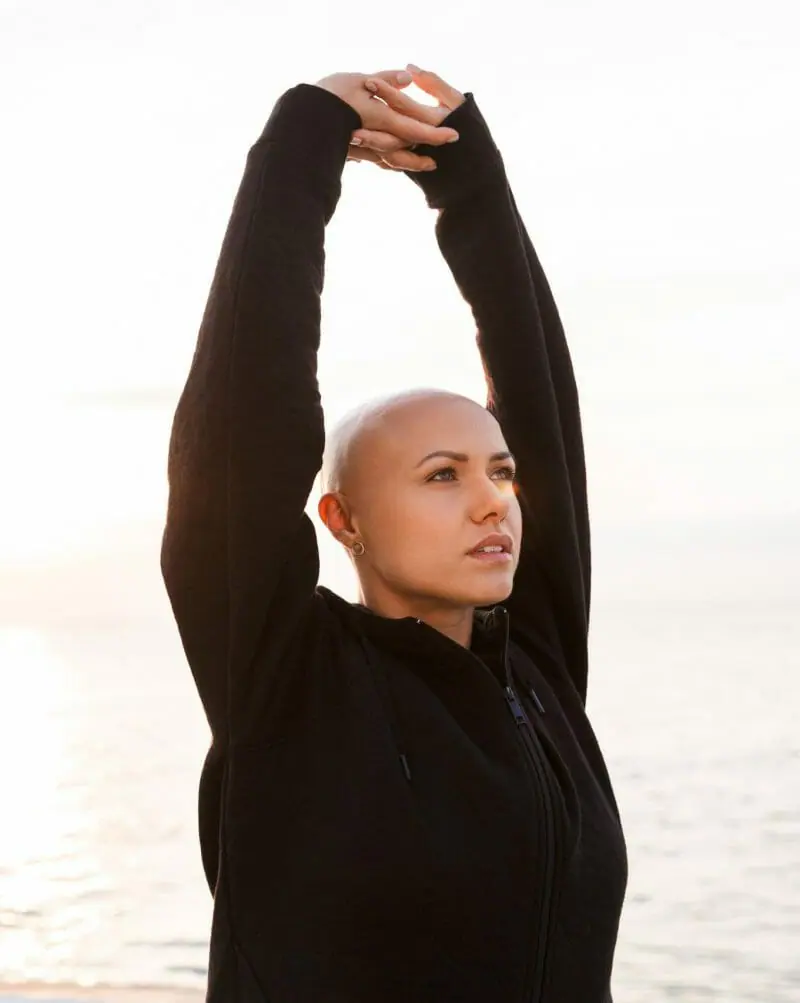
Housing & Lodging Assistance
Frequent treatment or travel to specialty treatment centers can leave patients and families scrambling for a place to stay. These programs offer lodging assistance and housing-related relief during breast cancer treatment.
American Cancer Society – Hope Lodge
Hope Lodge offers free lodging for patients and caregivers who travel far from home for treatment. Lodges are located near major cancer centers and provide a supportive, home-like environment.
What it helps with: Free temporary housing for patients and caregivers
How to apply: Call 1-800-227-2345 or visit cancer.org/hopelodge
The Pink Fund
In addition to daily living support, The Pink Fund can also pay mortgage payments, rent, and utility bills for up to 90 days while the patient is in active treatment and experiencing income loss.
What it helps with: Housing-related bills during a treatment-related income disruption
How to apply: Visit pinkfund.org
Joe’s House
Joe’s House is a national search engine for finding low-cost or free lodging near hospitals and treatment centers. Many listings offer discounted hotel rooms for cancer patients.
What it helps with: Discounted or donated housing options during treatment
How to apply: Search by location at joeshouse.org
Child and Elder Care Financial Help
When you’re in active treatment, coordinating care for children or aging parents adds another layer of pressure. These programs offer limited financial assistance, but even small grants can help offset critical caregiving costs.
CancerCare – Financial Assistance for Childcare
CancerCare offers up to $200 per month for up to three months to help breast cancer patients pay for licensed child care while undergoing treatment. Assistance depends on available funding and eligibility.
What it helps with: Licensed childcare during treatment
How to apply: Visit cancercare.org or call 1-800-813-HOPE (4673)
Susan G. Komen – Financial Assistance Program
While exact childcare support amounts vary, Komen’s program also helps cover child care, elder care, transportation, and other essentials for eligible individuals. Reported support may range from $100 to $500, based on household size and income.
What it helps with: Short-term caregiving support and household needs
How to apply: Call 1-877-465-6636 or visit komen.org
Prescription Drug & Treatment Assistance
Between specialty prescription drugs, recurring co payments, and insurance gaps, managing treatment costs quickly becomes one of the biggest financial stressors for breast cancer patients. These programs help, but their coverage is often limited—especially for the uninsured or underinsured.
CancerCare Co-Payment Assistance Foundation
CancerCare provides up to $10,000 per year to help patients cover prescription drug co payments and treatment costs related to chemotherapy and hormone therapy. Funds are available to eligible individuals with private insurance, Medicare, or Medicaid.
What it helps with: Copays for FDA-approved drugs, including oral chemotherapy
How to apply: cancercare.org
NeedyMeds Drug Discount Card
The NeedyMeds card saves up to 80% on prescriptions. It’s free, requires no income documentation, and works at over 65,000 pharmacies. While not insurance, it offers immediate help for patients paying full price for needed medications.
What it helps with: Out-of-pocket prescription drugs
How to apply: Request a card at needymeds.org
Medicine Assistance Tool (PhRMA)
This search engine helps patients find co pay relief programs from pharmaceutical companies. Some offer free medications or reduce brand-name costs to as low as $0–$10 per month, depending on income and insurance status.
What it helps with: Prescription assistance based on your medication and provider
How to apply: Search at medicineassistancetool.org
Low-Cost or Free Screenings
Early detection remains one of the most effective tools in the fight against breast cancer—but access to diagnostic tests like mammograms is still a financial barrier for many. These national programs help by offering low-cost or free screenings to eligible individuals.
National Breast and Cervical Cancer Early Detection Program (NBCCEDP)
Funded by the CDC, this program provides free or low-cost mammograms, clinical breast exams, and diagnostic services to women who are uninsured or underinsured. Many state insurance agencies participate.
What it helps with: Mammograms, diagnostic follow-ups, referrals for further care
Eligibility: Typically for women aged 40–64, at or below 250% of the federal poverty level
How to apply: Visit cdc.gov/cancer/nbccedp and find your state program
Clinical Trials
Clinical trials provide access to emerging therapies and advanced breast cancer treatment options that aren’t widely available. For many breast cancer patients, especially those with metastatic breast cancer, trials offer a way to receive cutting-edge care while contributing to medical research.
Many trials cover costs such as lab work, doctor visits, and even travel.
National Cancer Institute (NCI)
The NCI offers a comprehensive search engine for government-funded and private-sector trials. Many are available for patients with limited income, and some offer lodging assistance, transportation costs, and child care support during active participation.
What it helps with: Cutting-edge therapies, often at no cost; may include travel and housing
How to apply: Search trials at cancer.gov/about-cancer/treatment/clinical-trials
BreastCancerTrials.org
This nonprofit platform connects people diagnosed with breast cancer to clinical trials based on their diagnosis, location, and treatment stage. Many listings include whether co payments, lab tests, or specific prescription drugs are covered.
What it helps with: Finding trials that fit your diagnosis and current treatment center
How to apply: Start with a brief intake at breastcancertrials.org

Need Immediate Financial Relief? A Viatical Settlement Could Help
Not every financial assistance program moves quickly. Some offer $500 here or $1,000 there, often with long wait times, mountains of insurance paperwork, and eligibility restrictions. When you’re managing monthly payments, transportation costs, and medical bills during active treatment, that’s not enough.
That’s where we come in.
At American Life Fund, we help breast cancer patients convert their existing life insurance policy into a lump-sum cash payment—fast. There are no application fees, no invasive forms, and no waiting months for approvals. Most of our clients complete the process in under a week.
Depending on your policy, you could receive between 50% to 70% of your policy’s value—funds you can use immediately for treatment costs, living expenses, or just financial peace of mind.
We work only with eligible individuals facing life-threatening illnesses like metastatic breast cancer. Our team of experienced financial counselors will walk you through everything—no pressure or obligation.
To learn more or see if this option is right for you, visit American Life Fund or call 877-261-0632. They offer personalized guidance and are ready to help you make an informed decision.
We’ve Helped Thousands of
People Just Like You.
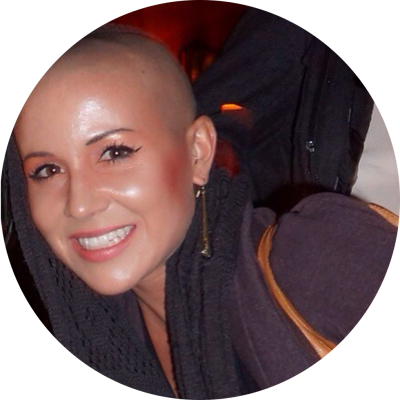
“You never know how stressful a cancer diagnosis is until you experience it yourself. American Life Fund relieved my financial worries so I’m able to focus on my journey to recovery!”
Andrea, Arizona
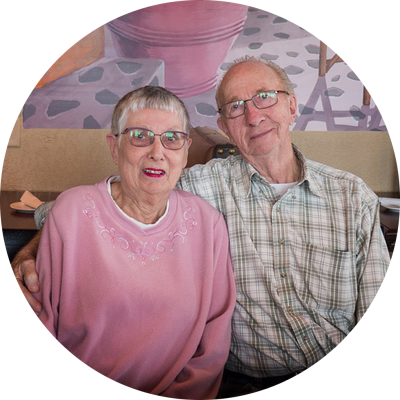
“Once I received the first bill for treatments, I knew that I had to come up with a financial plan. I found American Life Fund and instantly felt reassured that I was in good hands. They were able to provide me with the money I needed and literally saved me from bankruptcy. I am now able to enjoy my time with what means the most to me, my family.”
Dan, Alabama
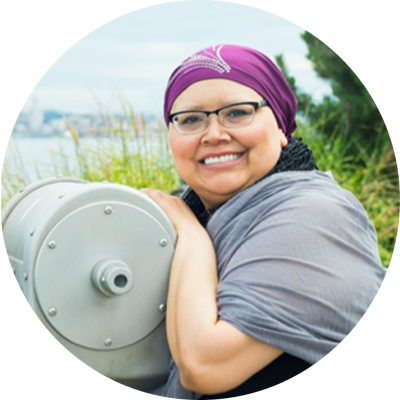
“When my husband was diagnosed with cancer and our retirement ran out, we needed a plan B and fast. American Life Fund provided the financial help we needed exactly when we needed it.”
Charlene, Wisconsin
